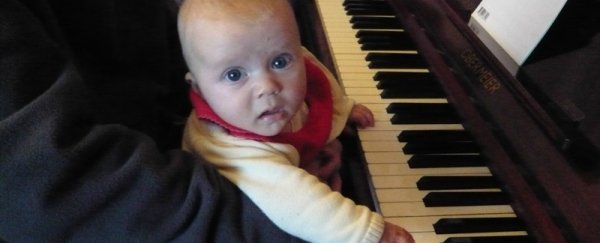There's a long-standing myth that, in order to master a skill, all it takes is roughly 10,000 hours of practice. The idea was first popularised in Malcolm Gladwell's 2008 book Outliers, based on a study of musicians by psychologist K. Anders Ericsson back in 1993. And despite skepticism from researchers, the rule was happily accepted by many as a glimmer of hope that perhaps, one day, if they tried really hard, they might become an expert pianist/baseballer/Italian speaker/Rubik's Cube-solver. Macklemore even wrote a song about the rule.
But, sorry to bust your dreams here, scientists have debunked the myth once and for all, and shown that, while some people can become an expert with 10,000 hours of practice - or less - many can't, and there's a whole lot more involved than just hard work. In fact, an international team of psychologists found that deliberate practice can only explain around one-third of the difference in skill levels in chess players and musicians.
This leaves "the majority of the reliable variance unexplained and potentially explainable by other factors", the team wrote in the journal Intelligence last year, where their results were published. Those factors, we're assuming, are natural talent and genetic ability.
The researchers came to this conclusion after analysing data taken across six previous studies of chess competitions (1,082 subjects in total) and eight studies of musicians (628 subjects), and looking for any kind of correlation between practice and success. What they found was that, well, there kinda wasn't one, and there were huge variations in how much of a role practice seemed to have played in success.
As Shaunacy Ferro writes for Fast Company:
"One chess player, for example, had taken 26 years to reach a level that another reached in a mere two years. Clearly, there's more at work than just the sheer volume of hours practiced, the study (and a similar one by the same authors published in May [2014]) argues."
"The evidence is quite clear," wrote lead author David Hambrick from Michigan State University in the US in a press release in 2013, "that some people do reach an elite level of performance without copious practice, while other people fail to do so despite copious practice."
Ericsson disagreed with these findings in a follow-up paper, where he criticised the researchers for studying too many beginners and not enough experts. But he too has his doubts about the cut-and-dry nature of the 10,000 hour rule.
But we're not telling you guys this to get you down. Instead, be comforted by the fact that, if you still haven't mastered Chopin's Scherzo No. 2 Op. 31 despite decades of piano lessons, it's definitely not for lack of trying. You may simply just not be talented enough. But since when has a lack of talent ever been a good reason to stop doing something you enjoy?
Macklemore, you lied to us through song. But we love you anyway.
Source: Fast Company
